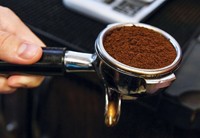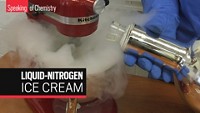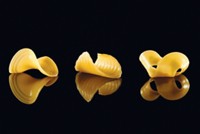Advertisement
Grab your lab coat. Let's get started
Welcome!
Welcome!
Create an account below to get 6 C&EN articles per month, receive newsletters and more - all free.
It seems this is your first time logging in online. Please enter the following information to continue.
As an ACS member you automatically get access to this site. All we need is few more details to create your reading experience.
Not you? Sign in with a different account.
Not you? Sign in with a different account.
ERROR 1
ERROR 1
ERROR 2
ERROR 2
ERROR 2
ERROR 2
ERROR 2
Password and Confirm password must match.
If you have an ACS member number, please enter it here so we can link this account to your membership. (optional)
ERROR 2
ACS values your privacy. By submitting your information, you are gaining access to C&EN and subscribing to our weekly newsletter. We use the information you provide to make your reading experience better, and we will never sell your data to third party members.
Environment
Newscripts
Author's signature-good or bad?, Debunking food myths, The power of water
by Linda Wang and Stu Borman
March 6, 2006
| A version of this story appeared in
Volume 84, Issue 10
Author's signature-good or bad?
Gary Siuzdak, Senior Director of the Center for Mass Spectrometry at Scripps Research Institute, La Jolla, Calif., recently sent a friend a complimentary signed copy of his new book, "The Expanding Role of Mass Spectrometry in Biotechnology, Second Edition" (MCC Press, San Diego, 2006).
"Thank you for the book," the friend wrote to Siuzdak. "It contains the type of information that could be helpful to me in my work. It's now a treasured resource on my bookshelf here. Not to mention the fact that I'm probably going to be able to sell this signed copy on eBay for millions once you've won your Nobel Prize in Chemistry, which could be any day."
However, Siuzdak replied that he wasn't as sure about the book's eventual value, noting that he had recently seen one of his books "selling as 'used' on Amazon, with the only 'flaw' being the 'author's remarks and signature' inside the cover."
Debunking food myths
Why do brick ovens make better pizzas? Does baking soda really absorb refrigerator odors? Author and Washington Post food columnist Robert L. Wolke will answer these questions and more during an evening lecture on March 24 at the Chemical Heritage Foundation in Philadelphia.
In his talk titled "Chemical Abuse in the Kitchen," Wolke will examine several long-established kitchen practices and beliefs that may or may not be scientifically defensible.
He will describe his research into debunking a variety of long-held food myths and use concepts such as solubility, viscosity, heat capacity, emissivity, boiling point, crystallization, hydrogenation, and partial pressure to analyze common kitchen operations.
Other topics he'll explore include how not to keep soda fizzy, how sea salt differs from mined salt, when to add cream to one's coffee, the use of raw potato to remove excess salt from a soup, what marinating does-and does not-do, and the role of alcohol in cooking with wine.
The lecture will be followed by a three-course dinner featuring recipes from Wolke's writings. The cost of the event is $50. For reservations, contact Jennifer McCafferty at (215) 873-8202 or jmccafferty@chemheritage.org. To register online, visit www.chemheritage.org.
The power of water
Some claims just sound too good to be true. Peter Brooker of Australia writes that during a recent trip to New Zealand, he stayed in a motel that sold a brand of bottled water called Waiwera Infinity Water. "The claims seemed incredible to me, and having studied chemistry a number of years ago," Brooker found them "highly improbable." According to the company's website, by shrinking the water molecules, "the minimized clusters can move through your body faster than other water and can penetrate your cell membranes more easily." What's more, "the water will inhibit excessive fermentation in the digestive track [sic] by indirectly reducing metabolites such as hydrogen sulfide, ammonia, histamines, indoles, phenols, and scatoles by changing them into harmless substances."
In New Jersey, Rider University chemistry, biochemistry, and physics professor Alexander Grushow recently spotted an advertisement for a chemical-free water conditioner. "Snap it around your main incoming water pipe (standard 3/4"), and its magnetic field will modify the polarization of mineral salts in the fresh water to restrict the formation and build up of sediments, limescale, and calcium deposits," the ad reads.
Grushow suggests, "If the magnetic field is strong enough and properly aligned, you might be able to mass select the ions coming through the water pipe." Note the sarcasm, he says.
And in Phoenix, Ariz., while preparing to sell his house, materials engineer Jason R. Guth heard about "a revolutionary approach" to carpet cleaning that uses empowered water. Zerorez, the company that has patented this technology, claims that this water can emulsify soils and exterminate a wide range of germs and bacteria. And it does so without leaving residues or toxic chemicals.
If Newscripts readers have any ideas for how these technologies might work-or have come across other claims seemingly too good to be true-let us hear from you.








Join the conversation
Contact the reporter
Submit a Letter to the Editor for publication
Engage with us on Twitter